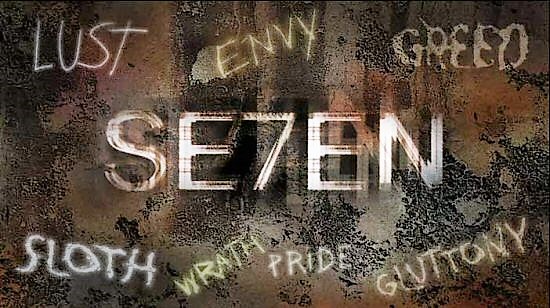Most readers of this blog will know—or know how to find out—the names of the seven deadly sins, according to Judaeo-Christian orthodoxy. They are, in alphabetical order, envy, gluttony, greed, lust, pride, sloth, and wrath.

Less known, perhaps, are seven contrasting virtues: kindness, temperance, charity, chastity, humility, diligence, and patience. A focus on these in our daily lives is thought to provide a shield from the deadly sins.
By way of comparison, the four vices identified in Islamic tradition are concupiscence (gluttony and lust), cowardice, ignorance, and tyranny. The contrasting virtues are chastity, courage, wisdom, and justice.
In Sikh philosophy, five vices, whose purpose is to steal one’s common sense, are identified: attachment, conceit, greed, lust, and rage. By contrast, the virtues identified are compassion, humility, love, and truth.
There is a remarkable similarity among these—attesting, perhaps, to a universal quest for righteousness and enlightenment across all humankind.
It is all too easy, of course, to succumb to the temptations of the vices, regardless of our religious and ethical upbringing. Much of the history of the world may be laid at the feet of those who chose to embark upon a darker path than our enlightened selves would have followed.

Despite those missteps, however, we have arrived at this place, in this time, with the same choice facing us—a commitment to the virtues or an embracing of the vices. I choose to believe—admittedly, less with evidence and more with hope—that our better natures will take us down the right path.
On a more pedestrian level, there are other, perhaps-lesser vices that bedevil us today in our quest for nirvana. As with the major vices cited earlier, they are linked to corresponding virtues that are too often missing in our commonplace activities.
Intellectual laziness is one such vice. So many people today are content to take whatever they might hear or read at face-value. They make no attempt to question its source, its veracity, or even its consequences. Critical thinking—the application of logic, surely an essential virtue—is non-existent for them. Advertising agencies, corporate behemoths, and politicians love such folks.
Farther along the same spectrum are the people who actively deny the truths of science and history. Absolute certainty—the refusal to accommodate opposing thoughts and opinions—leads them to see the world through only one lens. And often a faulty one, more prism than glass. They believe everything they think. Left to themselves, they may not do much damage. But when they ascend to positions of influence, the danger is palpable. The virtue of open-mindedness—a tolerance and consideration of others’ viewpoints—is sorely lacking.
Another everyday vice is the desire for instant gratification. Too many of us prefer not to think about the future, and how it will be affected by the choices we make today. “I’m alright, Jack!” is a phrase that springs to mind. This tendency may be forgiven in third-world countries, where vast populations are concerned only with their next meal, their next drink of water. But for us in the developed world, the profligate, endless consumption of the resources of our finite planet with little thought to their replenishment verges on the criminal. It’s been said that we have not inherited the planet from our forebears; rather, we have borrowed it from those yet to come. Yet we do not behave as if we believe that. The virtue of responsible stewardship is sadly lacking.

Egocentrism—a belief that I alone occupy the centre of the universe—is yet another modern vice. It manifests as a position of entitlement, the notion that you don’t matter as much as I do. Regardless of my socio-economic standing, I deserve the same things you do, whether earned or not. It’s a me-first attitude, aimed at placing me on a par with the most-privileged among us, demoting you and everyone else to subservient positions. In short, it tears our civilized, communal society asunder. It exists, I believe, in the absence of altruism, the virtue of selflessness, the presence of a social conscience.
Of all these vices, this last one—the absence of a social conscience—may be the direst for the future of humankind. Either we are each others’ keeper, or we are not.

As a wise man once said, faced with a choice of cohesion or division, “If we do not hang together, we shall surely hang separately.”
